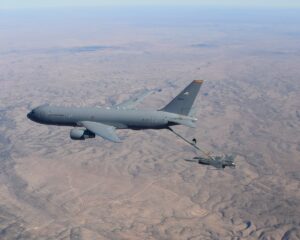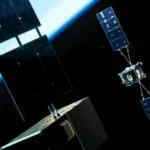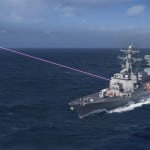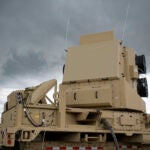
A new supplier issue related to the center fuel tank of the Air Force KC-46A aerial refueling aircraft and 767 commercial plane will cause Boeing [BA] to take a charge on the program when it reports first quarter results in April, the company’s chief financial officer (CFO) said on Wednesday. Specifically, it’s a “supplier quality issue” that will lead to negative margins at Boeing’s Defense, Space and Security segment in the quarter, Brian West said at the Bank of America…

 By
By 











